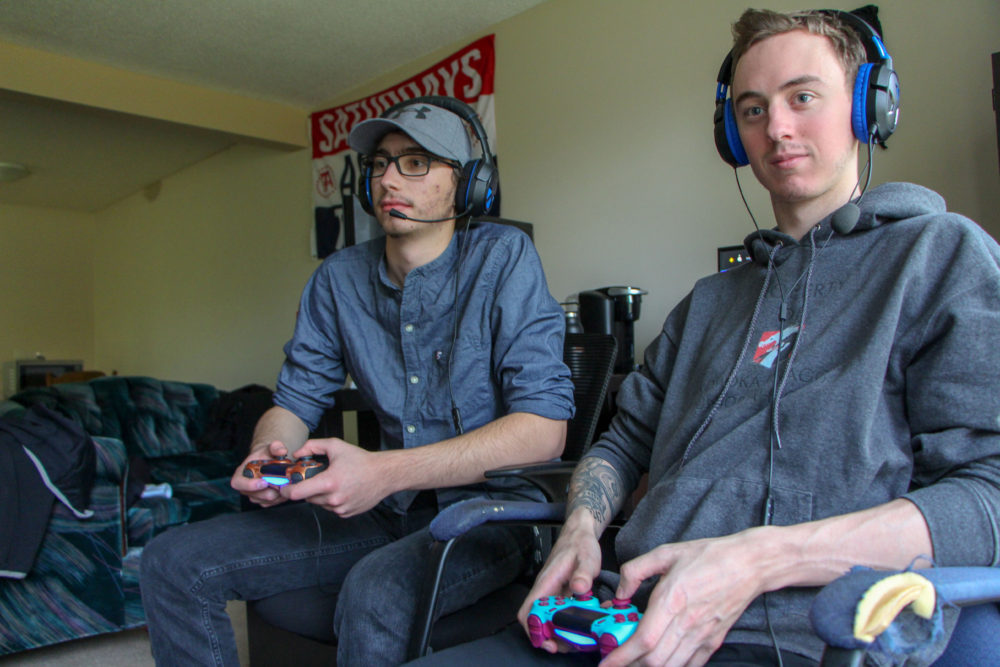For many students, Video games such as Fortnite and Call of Duty have become a dedication of time and effort thanks to the explosion of competitive gaming.
For millennials, video games have been a part of popular culture for their entire lives.
The explosion in popularity has continued trending upwards since those days of the mid-2000’s and today, there is more freedom for gamers than ever before.
The introduction of cross-platform play has gamers able to play certain games against their PC, Xbox, or PlayStation counterparts, no matter what system they are playing on.
Games such as Fortnite, an über-popular battle royale-style game, have proven to be the needle in terms of trending game styles in the past year.
According to data released by Fortnite’s developer, Epic Games, over 125 million people have played the game in 2018. Even in the summer months, when many gamers tuck away the console in favour of outdoor activities, Fortnite was still a popular entertainment choice: 82 million people played in August alone.
Fortnite and other battle-royale games like it, have a very simple wash-rinse-repeat cycle that has proven effective and even addicting. The game starts with a large number of players, usually 100, that drop into a large island map via skydiving.
Once on the ground, it is up to the player to survive by gathering resources, weapons and special abilities and try to become the last man standing by eliminating all other players.
As players are eliminated, the level decreases in size, putting an emphasis on close-quarters combat, until there is only one player left.
If you happen to get eliminated early on, you don’t have to watch the remainder of the game before you play again; instead, you leave the game and are able to jump into another one with a different set of players right away.
Though Fortnite has only one multiplayer game mode, it remains one of the most popular games worldwide.
Why has this game remained so addictive, even after months of the same thing?
The answer lies in our brain’s reward system. Much like playing a slot machine at a casino, getting into the final 25, 10, or top five excites our brain, because we are so close to our reward – victory.
Getting so close to victory nearly every time triggers our brain to want to keep chasing the elusive win and thus, players can spend hours on end in front of the monitor.
“Since I’ve started playing, I have racked up over 400 wins,” says Tyson Hergott, Lethbridge College student and avid gamer. “I keep coming back because I want to stay ahead of all my friends on the leaderboard.”
Fortnite is a free-to-play game that can be downloaded onto Xbox, Playstation, PC, or even mobile platforms with no purchase required.
However, the game offers a variety of in-game purchases, such as new character skins or dances.
According to a report from Super Data via IGN, Epic Games has grossed over $1 billion from in-app purchases across all platforms, in less than a year.
Hergott has contributed nearly $400 to that total since he started playing.
“When you play as much as I do, you want to have a unique looking character, because it shows your opponents that you’re likely pretty good,” Hergott explains.
The battle royale trend is continuing to pick up steam. Now Call of Duty, one of the most popular video game franchises of all time, is including a battle royale game mode in its newest installment, which hits shelves in two weeks.
The upcoming release of Call of Duty: Black Ops 4 has another section of the gaming population excited for other reasons.
The new game means a new competitive season of eSports follows not far behind and some students at the college are preparing just as much as any athlete would for their season.
Cole Fraser and Devin Headrick both study in the School of Media and Design at Lethbridge College, but when not focused on their studies, the two roommates immerse themselves in the world of competitive gaming.
“Competitive gaming is definitely the next billion-dollar industry,” says Fraser. “It’s starting to be broadcasted on TSN and Sportsnet now. It’s just like being a professional baseball or hockey player, except you’re in front of a monitor. Lots of these players are getting paid big money.”
Both Fraser and Headrick have been playing video games for the better part of a decade and have mostly played first-person shooters such as Call of Duty ever since.
After honing their skills to the point where they were well above-average, the two friends took their talents to the next level and began playing competitively.
“Once you see yourself getting better, you strive to keep going and keep improving,” says Headrick. “If I didn’t play competitively, I definitely wouldn’t spend as much time as I do, playing these games.”
Fraser and Headrick joined a new organization this summer, Polar Ace eSports, in preparation for a new Call of Duty season.
“Once I met Devin and our other teammates, we all make each other want to play better,” Fraser notes. “It’s like hockey – if you just play
for fun, it’s like playing in the college league. We’re trying to take it to the next level and win tournaments, so it is more like the WHL, where teams are working towards winning a championship.”
Both Fraser and Headrick hope they can win some cash tournaments in the upcoming season. Fraser said some players in their organization have taken home thousands of dollars playing different games.
“It’s really an obsession,” says Headrick. “You start by wanting to be the best out of your friends and then you want to get to the next level and be just as good as the streamers [on YouTube].”
The pending release of Call of Duty: Black Ops 4 means that another significant uptick in gamers taking their talents to the competitive side is just around the corner.



